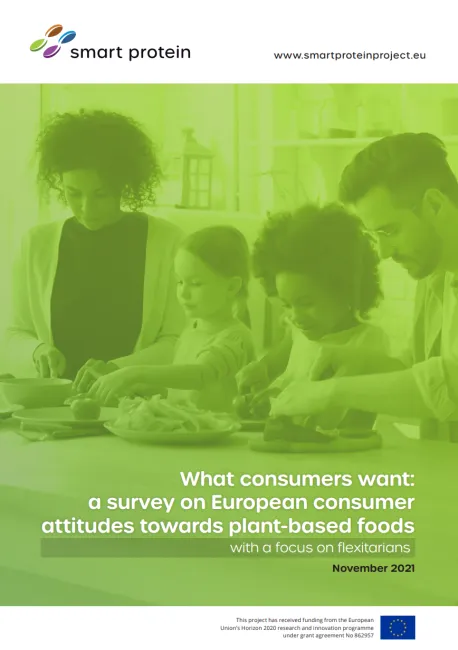46% of Europeans say they have reduced their meat intake, according to a survey lead by ProVeg International. The study asked over 7,500 people in ten European countries (Austria, Denmark, France, Germany, Italy, Netherlands, Poland, Romania, Spain, and the UK) about their attitudes towards plant-based foods and their current food consumption patterns.

Survey participants were recruited by Innova Market Insights. Quotas for age and gender were set in all ten countries, to ensure that the participants were representative of the general population. The survey is part of the Smart Protein Project and has received funding from the European Union’s Horizon 2020 research and innovation programme.
The figure below shows the prevalence of each dietary type by country. Only small percentages of respondents are vegans or vegetarians, but a significant minority are self-described flexitarians (i.e. sometimes eat meat but try to reduce their consumption). 37% of people in the sample are flexitarian, vegetarian, or vegan.
Image: Chart 1, ProVeg International. Dietary lifestyle by country.
When asked about current consumption of meat now compared to a year ago, 46% said they were eating either “a lot less” or “slightly less”; 48% said there was no change; and 6% said they were eating “slightly more” or “a lot more”.
Regarding intended future consumption of animal-based products, 39% of omnivores and flexitarians said they intend to eat less or a little less meat in the next six months, and only 7% said they intend to eat more or a little more. 28% intend to eat less or a little less dairy, with only 8% intending to consume more or a little more.
The report also discusses a number of other issues, including current and future consumption of plant-based food types, likelihood of eating plant-based meat and cheese, the frequency with which flexitarians consume various types of animal- and plant-based foods, likelihood of paying higher prices for plant-based foods than for conventional options, and barriers and assumptions regarding plant-based foods.
Read the full report, What consumers want: a survey on European consumer attitudes towards plant-based foods with a focus on flexitarians, here. See also the TABLE explainer What is a healthy sustainable eating pattern?




Comments (0)